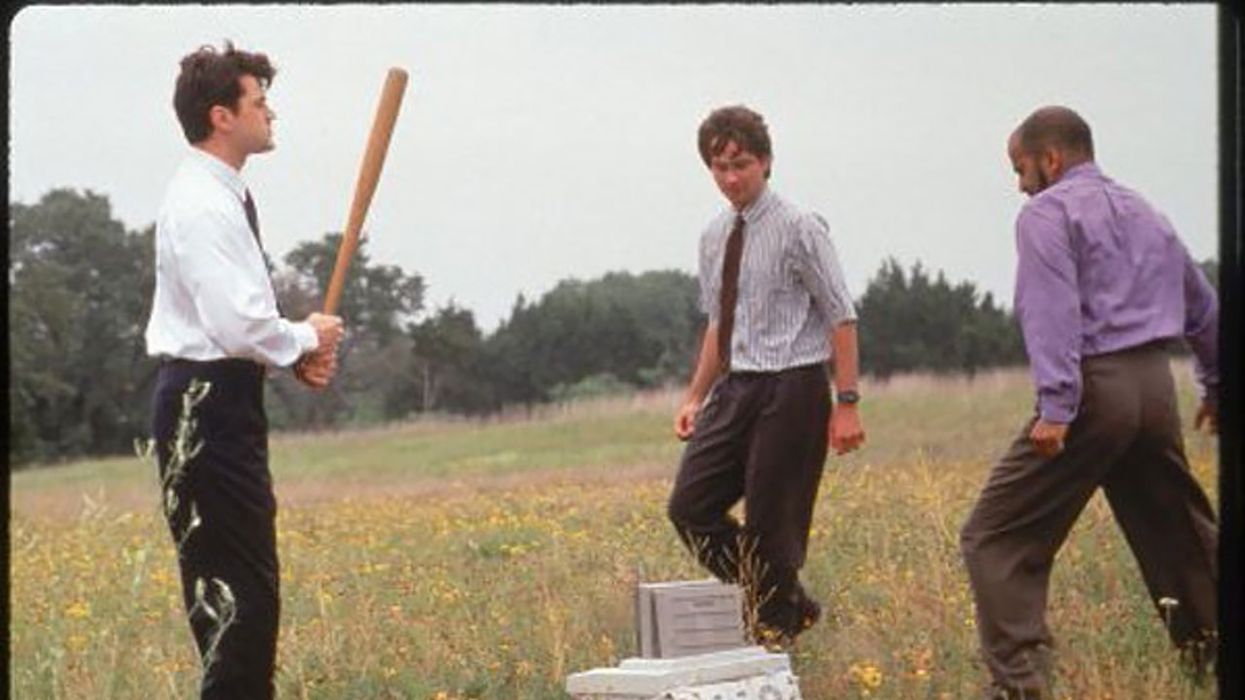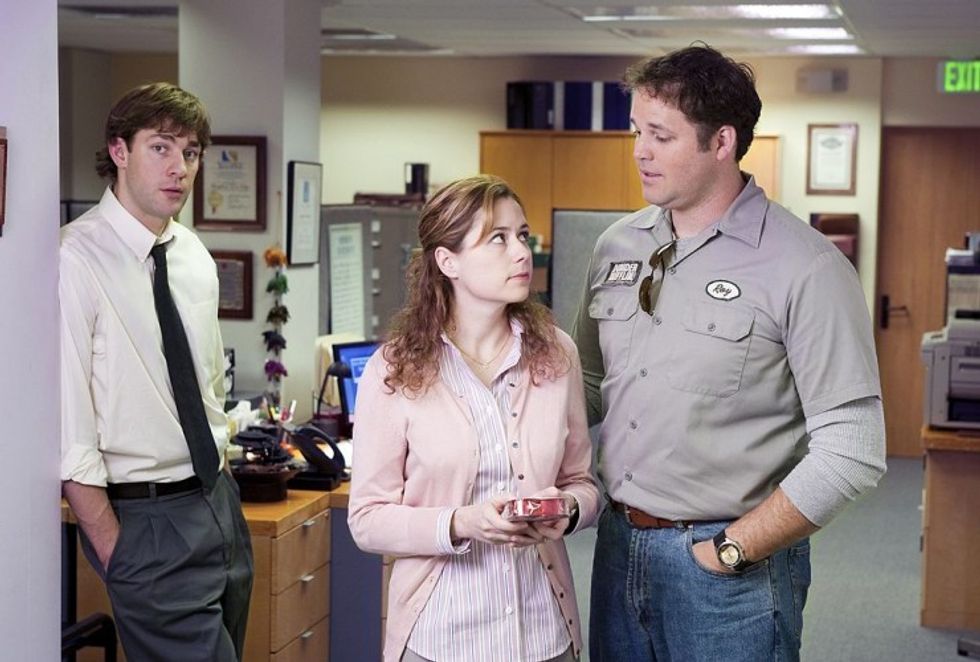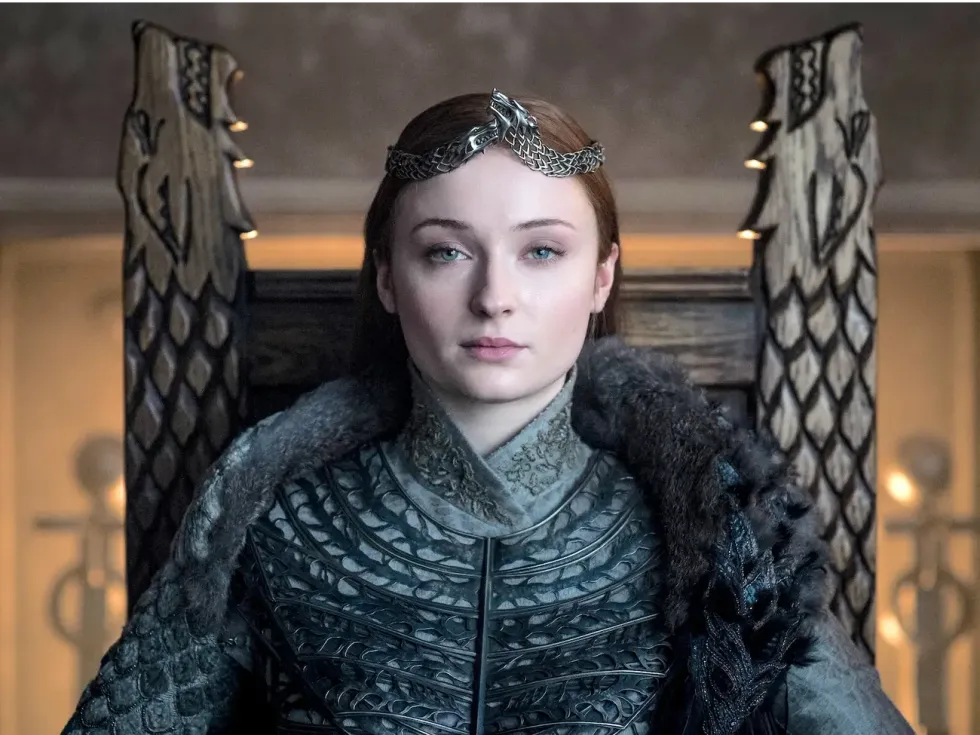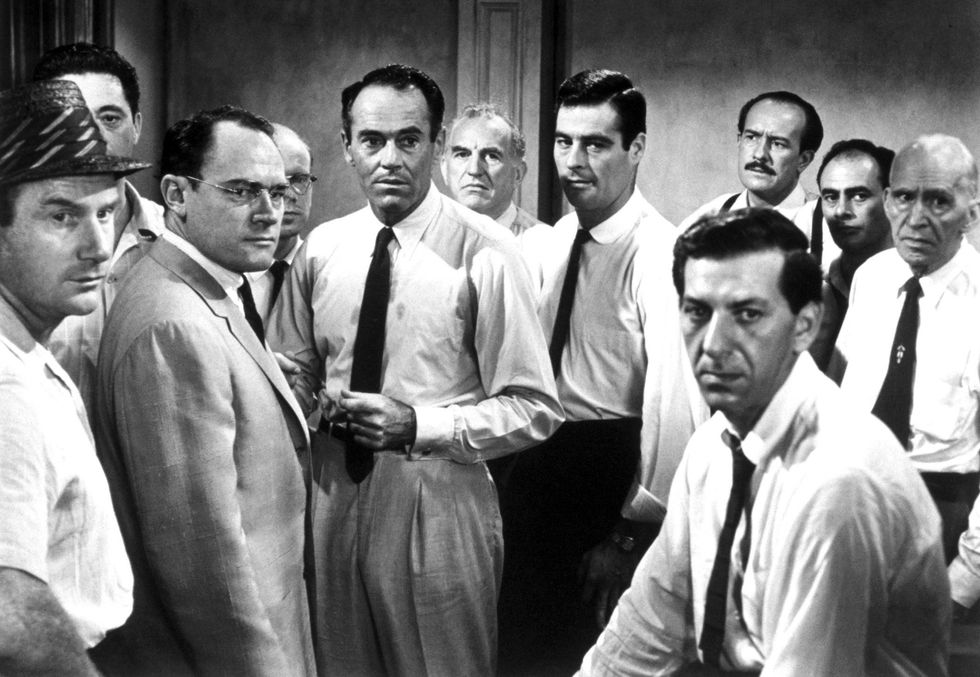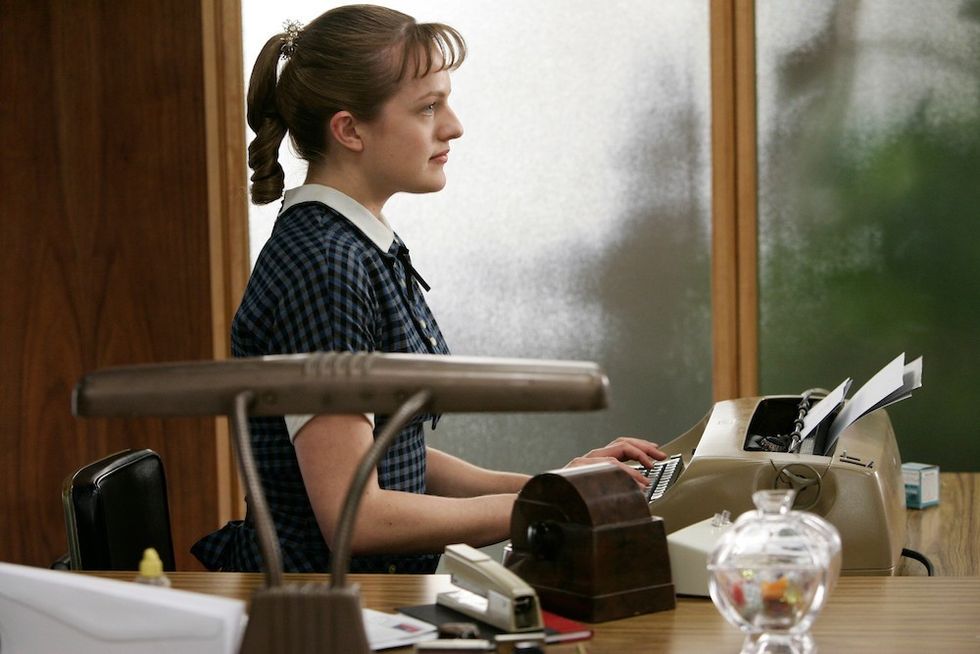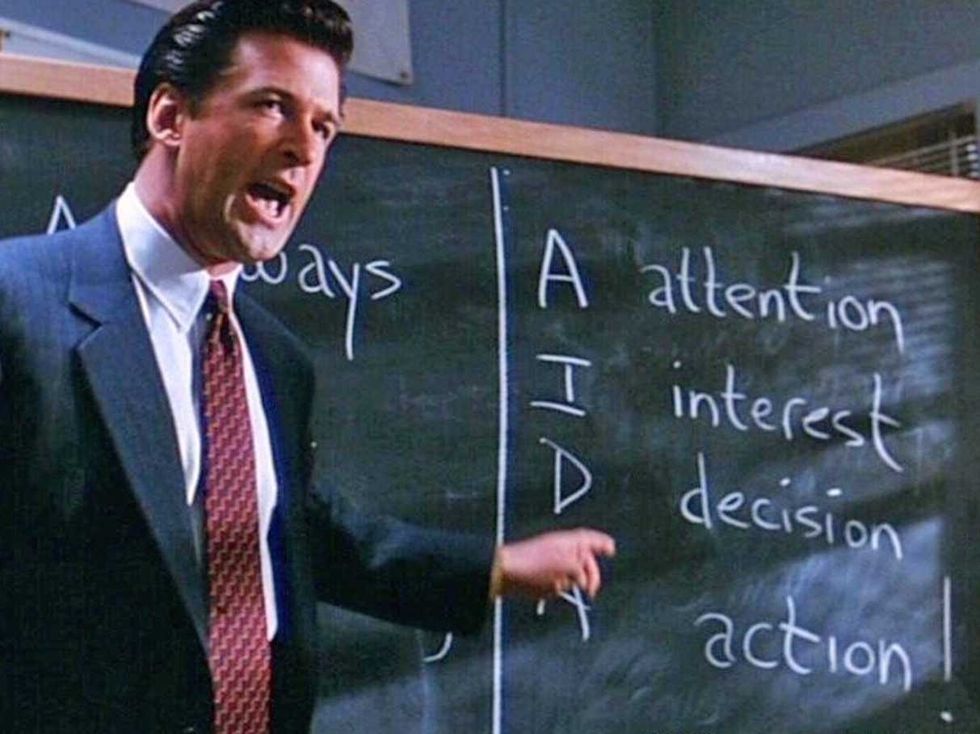Why Martin Scorsese's 'Raging Bull' Inspired Robert Schwentke to Shoot 'The Captain' in Black and White
Hollywood director Robert Schwentke doesn't care whether audiences like 'The Captain,' his first indie film.
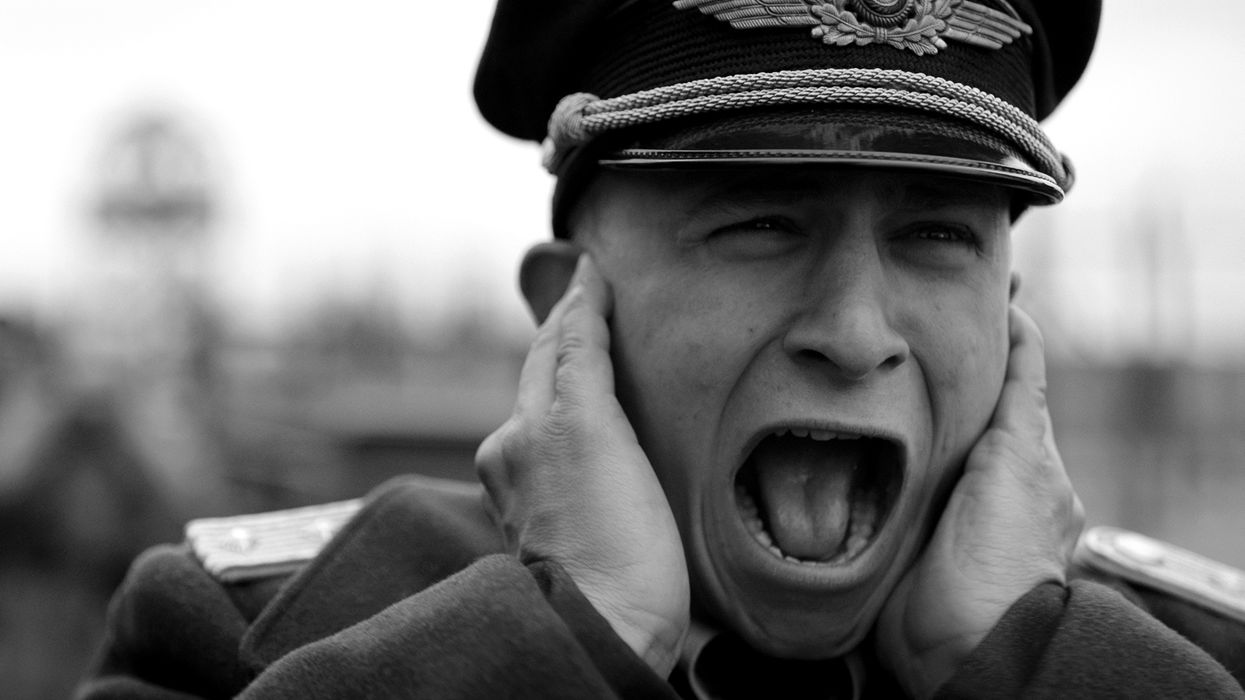
You may recognize Robert Schwentke's name from Hollywood blockbusters such as the Insurgent franchise, RED, or The Time Traveler's Wife. But you won't recognize any elements of those films in The Captain. Schwentke's first independent effort is a singular vision—one that decidedly eschews convention. Taking a cerebral approach to a nearly untouchable subject, Schwentke's film is a challenging watch. If audiences don't like it? Well, that's no concern of his. Indeed, it is all part of the design.
The Captain takes place in the waning days of World War II. As the Third Reich unravels, soldiers on the German front begin to desert and pillage. 21-year-old corporal Willi Herold (Max Hubacher) is one of them. After narrowly fleeing a troop of soldiers hunting deserters like himself, Herold stumbles upon a decorated captain's uniform in an abandoned truck. He puts it on. Suddenly, he is an authority figure. He encounters other opportunistic marauders, persuades them to join him by telling a story about receiving orders directly from Hitler, and summarily develops a taste for power.
Over the course of the next two weeks, Herold, claiming to heed direct orders from the Führer, will overtake a German prison camp for deserters. He will subject them to the brutality for which Nazi officials are well known. Eventually, he will execute them. The hunted becomes the hunter.
The tone is farcical—so much so that it borders on the absurd. Save for one crucial scene, Schwentke and his cinematographer Florian Ballhaus shot the film entirely in black-and-white. There are few close-ups; the camera keeps its distance and often looms overhead, a specter of a conscience looking down upon the reprehensible actions of man. With the moral distance afforded by Schwentke's careful approach, the audience is encouraged to sit back and analyze the harrowing psychology at the root of fascism.
No Film School caught up with the German director prior to his film's premiere in New York and Los Angeles to discuss utilizing the Brechtian method of distancing, how he framed many shots in order to "not show something," and why filmmakers have stopped innovating in narrative storytelling.
No Film School: After watching The Captain, I was very surprised to learn that it was based on a true story. How did you discover Willi Herold's story and what compelled you to make a film about it?
Robert Schwentke: I was looking actively for a story that would allow me to take a look at the dynamic structure of national socialism. In Germany, only two films have been made from the point of view of the perpetrators [of the Third Reich]: one is from the late '70s, The Wannsee Conference, which is of course where the Final Solution was agreed upon. Then there is About a German Life, which is a fictional biography of Joseph Goebbels. And that is really it. There's not much in literature, either.
I thought that was surprising. I'm not a historian, but I kept finding examples in other cultures where I could see they were dealing with their past and with their culpability [through] cinema. But on the other hand in Germany, we have almost a surplus—and this sounds like a judgment, but it's really not meant as a judgment—of films about the people who fought fascism and usually died for it. They are heroes because they stood up for what they believed in, and they were willing to die for it, which is more than most people did at the time. But what these films do is give you a character whom you can morally identify with as an audience member.
I wanted to make a film where that was not the case—where the audience would be forced to come to their own conclusion. I wanted to make a movie that was delivered without a moral manual. That's not to say that the movie is morally relativistic or immoral; I just to approach the idea of talking about culpability from a different angle.
"We knew that we were making a very confrontational—possibly provocative—film. The question of whether the audience would like it or not was kind of beside the point."
Schwentke: I came across several stories that allowed me to do that kind of a story. Most of them were impossible to put on film. I finally found this one and I felt, "I could try to do this. I could attempt to turn this into a film." What was also appealing to me is that it would allow me to look at the various layers of the structure [of national socialism], all the way from the common soldier up to the generals, and do a little bit of an analysis without ever been didactic or pedantic about it. I felt like I could make a commentary on human nature in times of war, specifically located in a totalitarian system.
NFS: You weren't trying to immerse the audience in the story. This isn't Schindler's List. You were trying to create some amount of distance so that we can examine this from an objective moral perspective.
Schwentke: Yes. Interestingly enough, there's one sole color shot in the film. Several of my American colleagues who saw the film and liked it were adamant that I should [cut] that one shot. The reason was that they felt alienated from the film—like the film had thrown them out. I'm using the word alienated because it refers to the Brechtian technique and that was exactly the ploy. I didn't want you to be so wrapped up in the dramaturgy of the film that you would not have the necessary distance to look at the proceedings and morally locate yourself. And so the very thing that they were criticizing was exactly the effect I was after. I left it the shot in!
"We made a lot of decisions about how we can get away with not showing something."
NFS: You said that you were inspired to shoot black-and-white after hearing an anecdote Scorsese told about shooting color tests for Raging Bull: "... boxers' blood was squirting all over the place. Michael Powell, who he showed these tests to, advised him to use black-and-white footage, as otherwise, people wouldn’t be able to watch the film and see beyond the blood. Essentially, he would lose his audience." How did you approach shooting in black-and-white with regard to this?
Schwentke: Yeah, very much so. It just struck me as tremendously astute and smart. I'm a huge fan of Michael Powell's and I figured if Scorsese takes his advice, who am I to not do that as well?
We made the decision early on to not dramatically exploit the violence—to register it as if it was sort of mechanical, finely-tuned machine to murder. And the question always was, "Where's the balance? How much do you show and how much do you not show?" I found that if you don't show anything, you would betray the victims. I thought that a tasteful film about such a tasteless thing would be immoral. So, I wanted to make a film that wasn't explicitly gory, but also that didn't flinch at the horror.
That's why we made the decision, for example, to never look into the pit [of bodies]. That was not a decision made in editorial; this was a decision made prior to shooting. There literally was no footage of the pit. We did have actors in there who were interacting with the actors standing around the pit, so there was action, but we never shot it because we said, "This isn't something we want to show."

NFS: It seems like most decisions in terms of framing and cinematography were preconceived. How did you plan shots so that the framing referenced the moral framework of the film?
Schwentke: When you look at how we treat, cinematically speaking, the main character, it's a question of how long you can actually remain attached to him. I think if the camera pretends that you're still attached at a moment where you're clearly not attached any longer—because he has chosen actions that are repellent or that are distancing—you're making a mistake. So we were trying with the camera to calibrate the distance between the audience and the main character.
It was similar to our approach to the violence. The violence was going to be—when it was on camera—short and sharp. And when it was not on camera, we wanted it to feel pervasive because that's exactly what it was in [concentration] camps. It was a pervasive, atmospheric rumbling that you could fall prey to at any given moment. And the camera basically reflects those approaches.
We made a lot of decisions about how we can get away with not showing something.
"I would not have been able to make The Captain without the experience I gained from making Hollywood films."
NFS: What was your process with your cinematographer? Did you meticulously shot-list?
Schwentke: We do it in all kinds of different ways. I've made 9 of 10 films with the same DP [Florian Ballhaus] now, so I'm not sure how generally applicable our method is. But we never start talking about shots. What's on our mind is, "What do we want to express? What are the themes? What's the emotion? Who are the characters? Where's the rise and fall, the contraction and expansion of the narrative? Where do we want the audience in the middle? Where do we want the audience removed?" And then we go through the transitions between the scenes. So when we go through the script, it's really all about what effect we want to create—what is it that we want to communicate.
From there, if it's a complex sequence, then I will storyboard it. I will shot list by all means. Sometimes I previsualize things, but not much on this film because we only had some VFX. We did a previz for the air raid just so we knew where the camera needed to be and where it needed to point and where the airplanes would be. Obviously, we had no [real] airplanes.
Whatever it is—whatever plan I have—I'm happy to throw away if I discover something. Driving home [from set] at the end of the day, my main joy is to feel like I have been surprised—I have been shown a layer that I could have never thought of by myself—by the actors. That's a good day. If I don't get surprised, I drive home and I'm fairly depressed because I feel like we wasted a day.

Schwentke: We had extensive rehearsals. We had weeks of rehearsals. I knew that the tonality would be hard to get and with this kind of heightened tonality, in terms of the performances and the characters, it's all the more important that the characters are grounded and that the actors know exactly why characters do what they do. So, by the time the rehearsals were done and we were on the set, we knew what we needed. But within what we needed, we did roam.
NFS: You've worked on some major Hollywood blockbusters. This is your first independent feature. What did you learn from that world that you brought with you to this smaller, more personal film?
Schwentke: Well, I was lucky enough to be able to make films in a great variety of tones and genres, which was of course intentional. I never wanted to repeat myself and I always wanted to try out things. I would not have been able to make The Captain without the experience that I gained from making [Hollywood] films.
Even my Hollywood films are... well, not all of them, but most of them—they're personal films to me. I had cancer when I was 27 and so, for example, The Time Traveler's Wife was a deeply personal film about living with a potentially lethal sickness and making a life around it, falling in love around it, and feeling like damaged goods but still wanting to commit to a relationship knowing fully well that you may or may not bring pain.
"Driving home [from set] at the end of the day, my main joy is to feel like I have been surprised by the actors."
Filmmaking is hard. It's two years of your life. You don't just make these films because you need money in the account—hopefully, that's not why you're making them. With Insurgent, I really, deeply felt that film, for better or for worse. So, I don't really make a distinction between my Hollywood work and my other work.
The reality is though, of course, that if you make a film on the scale of The Captain outside of the system, you have a lot less power to contend with. Your decisions are not based on the question, "Well, how can we make this the best product to make the most money?" That's the Hollywood paradigm: it is a product, it needs to make money, it needs to appeal to the largest possible audience. Not necessarily to the lowest common denominator, but certainly, a lot of the process of designing a Hollywood film deals with or is based on the question: "Will people like this or not?"
And we, of course, knew that we were making a very confrontational—possibly provocative—film. The question of whether the audience would like it or not was kind of beside the point. So we were free to make decisions based on how to best tell this story. That was predictably satisfying to me because there are many decisions that are not mine that go into a Hollywood film I make. But my name is on it and I still have to defend choices that were possibly not mine. That's a little grating. It's a little frustrating to be held accountable for something you're not responsible for. And on this movie, accountability and responsibility were the same. So, I'm totally happy with that. If somebody doesn't like this film and criticizes it, that's fine because I felt that those choices were the right ones.

Schwentke: Well, what I was not prepared for was...there are so many conventions in cinema that have sort of calcified into truths. People take them as gospel. They've become sort of this rule book. And I was surprised to what degree in Germany, for example, the category of World War II film had calcified.
The Captain was the opening film for a festival in Germany for new directors, so only first-time filmmakers were there. They saw the film and afterward some of them came up to me and said, "Well, obviously next time you make a film you should think about it a little more before you make it because clearly this was shot from the hip. You didn't think about it enough." I said, "What makes you think that this was shot from the hip? Do tell." And they said, "We were kind of done with what was going on and you kept hitting us over the head with it. In the end, nobody realized how evil [Willi's actions were] and the bad guys just kept being bad...."
"We no longer have narrative innovation in cinema."
What they basically perceived was that by not serving the conventions, I had made an unintentional mistake. So, they didn't see it as a subversion—they saw it as, "Oh, this guy clearly doesn't know how to make a film because he doesn't know the rules." That I was not prepared for. I find that very distressing because that's not what cinema is or should be.
In hindsight, I'm all the happier to have made the film with the will to approach this whole thing differently. It's so sad because innovation is the lifeblood of cinema, but the only innovation we have anymore is world-building innovation. We no longer have narrative innovation in cinema. We've sort of resorted to cliffhanger narratives. Our narratives are regressive and our technology is progressive. The innovation that should happen in the narrative realm is only happening in the technological realm. And I think the problem is that people are now starting to mistake one for the other, and that's not good.
For more information on 'The Captain,' click here.
